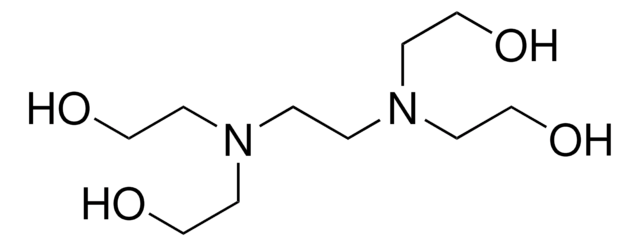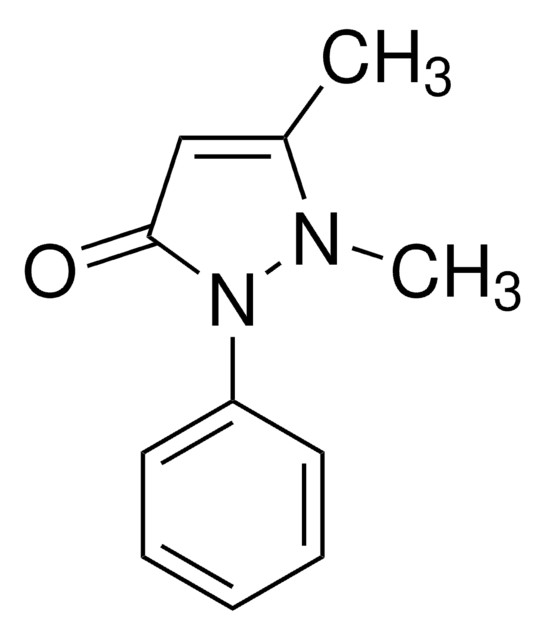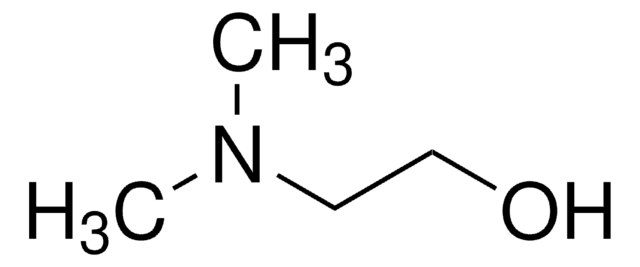471240
N-Butyldiethanolamine
≥98.6%
Synonym(s):
2,2′-Butyliminodiethanol, N,N-Bis(2-hydroxyethyl)butylamine
About This Item
Recommended Products
vapor density
5.5 (vs air)
Quality Level
vapor pressure
1 mmHg ( 25 °C)
Assay
≥98.6%
refractive index
n20/D 1.463 (lit.)
bp
273-275 °C/741 mmHg (lit.)
mp
−70 °C (lit.)
density
0.986 g/mL at 25 °C (lit.)
functional group
amine
hydroxyl
SMILES string
CCCCN(CCO)CCO
InChI
1S/C8H19NO2/c1-2-3-4-9(5-7-10)6-8-11/h10-11H,2-8H2,1H3
InChI key
GVNHOISKXMSMPX-UHFFFAOYSA-N
Looking for similar products? Visit Product Comparison Guide
General description
Application
- new mononuclear [Cu(Hbdea)2]·2Hdnba , dinuclear [Cu2(μ-Hbdea)2(N3)2] and [Cu2(μ-Hbdea)2(pta)2]·2H2O
- 1D polymeric [Cu2(μ-Hbdea)2(μ-tpa)]n·2nH2O copper(II) compounds
- tetranuclear 3d-4f single-molecule magnet (SMM) complexes
Signal Word
Danger
Hazard Statements
Precautionary Statements
Hazard Classifications
Eye Dam. 1
Storage Class Code
10 - Combustible liquids
WGK
WGK 1
Flash Point(F)
265.1 °F - closed cup
Flash Point(C)
129.5 °C - closed cup
Personal Protective Equipment
Choose from one of the most recent versions:
Already Own This Product?
Find documentation for the products that you have recently purchased in the Document Library.
Customers Also Viewed
Our team of scientists has experience in all areas of research including Life Science, Material Science, Chemical Synthesis, Chromatography, Analytical and many others.
Contact Technical Service












